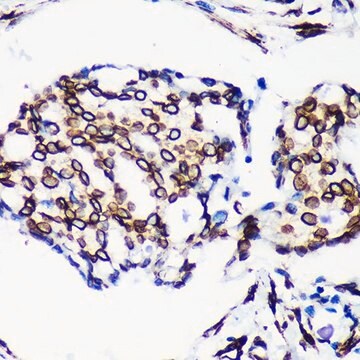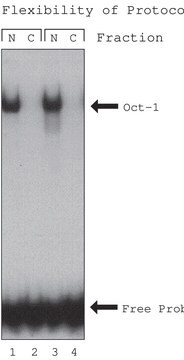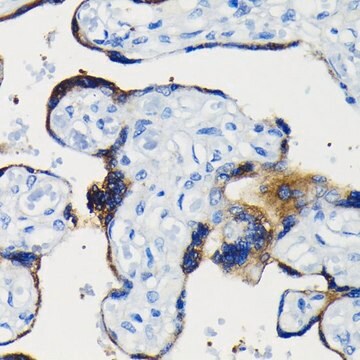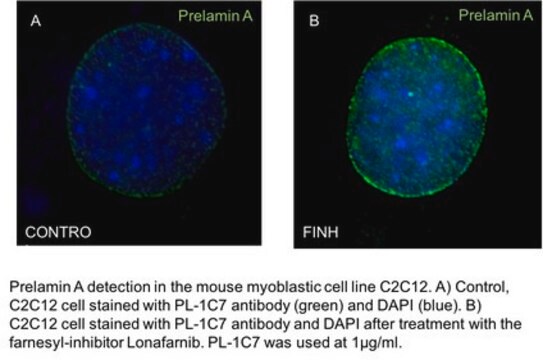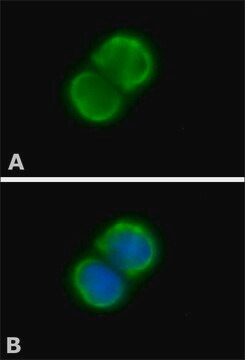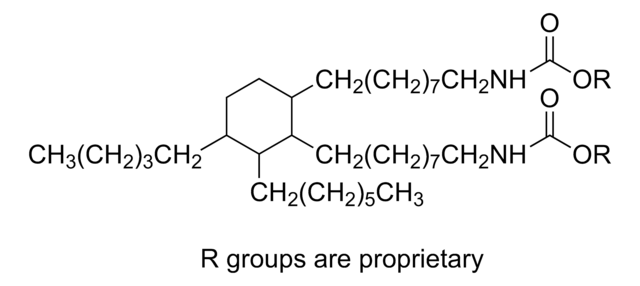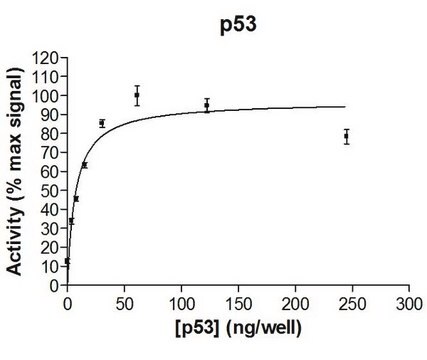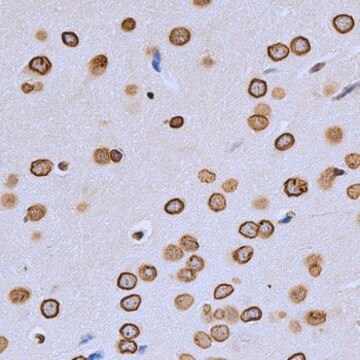MABT1458
Anti-Prelamin-A Antibody, clone 3C8
Synonym(s):
Prelamin A
About This Item
Recommended Products
biological source
rat
Quality Level
conjugate
unconjugated
antibody form
purified antibody
antibody product type
primary antibodies
clone
3C8, monoclonal
mol wt
calculated mol wt 74.23 kDa
observed mol wt ~77 kDa
purified by
using protein G
species reactivity
mouse
packaging
antibody small pack of 100 μL
technique(s)
immunocytochemistry: suitable
immunofluorescence: suitable
immunohistochemistry (frozen sections): suitable
western blot: suitable
isotype
IgG1κ
epitope sequence
C-terminal
Protein ID accession no.
UniProt accession no.
shipped in
2-8°C
target post-translational modification
unmodified
Gene Information
mouse ... Lmna(16905)
General description
Specificity
Immunogen
Application
Evaluated by Western Blotting in lysate from Mouse smooth muscle cell with ZMPSTE24 knockout.
Western Blotting Analysis (WB): A 1:500 dilution of this antibody detected Prelamin-A in lysate from Mouse smooth muscle cells with ZMPSTE24 knockout, but not in lysate from wild-type Mouse smooth muscle cells.
Tested Applications
Immunocytochemistry Analysis: A representative lot detected Prelamin-A in Immunocytochemistry application (Davies, B.S.J., et al. (2010). Hum Mol Genet. 19(13); 2682-94).
Immunofluorescence Analysis: A representative lot detected Prelamin-A in Immunofluorescence application (Davies, B.S.J., et al. (2010). Hum Mol Genet. 19(13); 2682-94; Heizer, P.J., et al. (2020). J Lipid Res. 61(3); 413-421).
Western Blotting Analysis: A representative lot detected Prelamin-A in Western Blotting application (Heizer, P.J., et al. (2020). J Lipid Res. 61(3); 413-421).
Immunohistochemistry Applications: A representative lot detected Prelamin-A in Immunohistochemistry applications (Davies, B.S.J., et al. (2010). Hum Mol Genet. 19(13); 2682-94; Heizer, P.J., et al. (2020). J Lipid Res. 61(3); 413-421).
Note: Actual optimal working dilutions must be determined by end user as specimens, and experimental conditions may vary with the end user
Physical form
Storage and Stability
Other Notes
Disclaimer
Not finding the right product?
Try our Product Selector Tool.
Storage Class Code
12 - Non Combustible Liquids
WGK
WGK 1
Flash Point(F)
Not applicable
Flash Point(C)
Not applicable
Regulatory Listings
Regulatory Listings are mainly provided for chemical products. Only limited information can be provided here for non-chemical products. No entry means none of the components are listed. It is the user’s obligation to ensure the safe and legal use of the product.
JAN Code
MABT1458-100UL:
MABT1458-25UL:
Certificates of Analysis (COA)
Search for Certificates of Analysis (COA) by entering the products Lot/Batch Number. Lot and Batch Numbers can be found on a product’s label following the words ‘Lot’ or ‘Batch’.
Already Own This Product?
Find documentation for the products that you have recently purchased in the Document Library.
Our team of scientists has experience in all areas of research including Life Science, Material Science, Chemical Synthesis, Chromatography, Analytical and many others.
Contact Technical Service